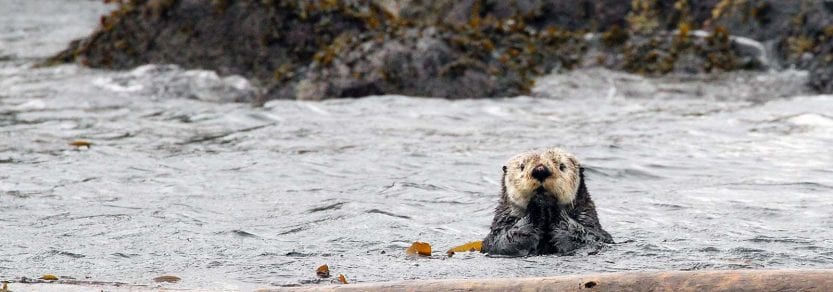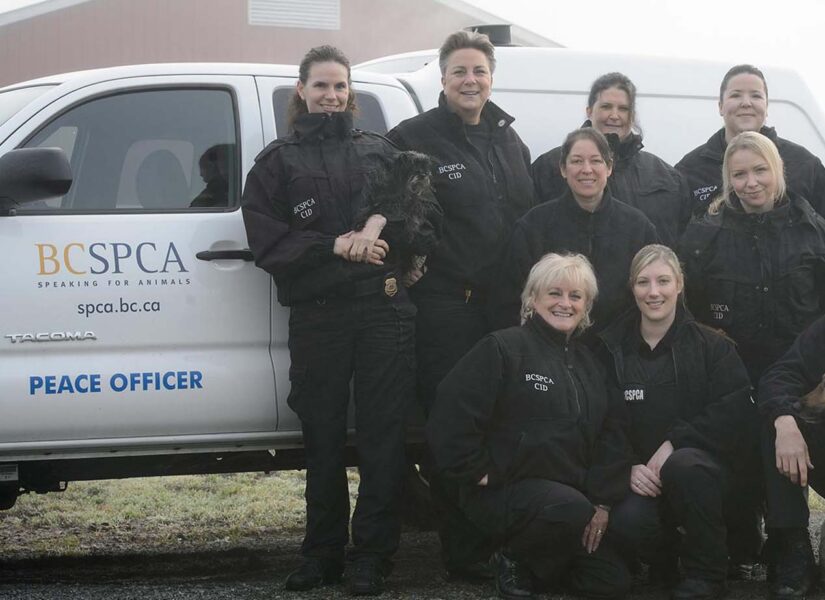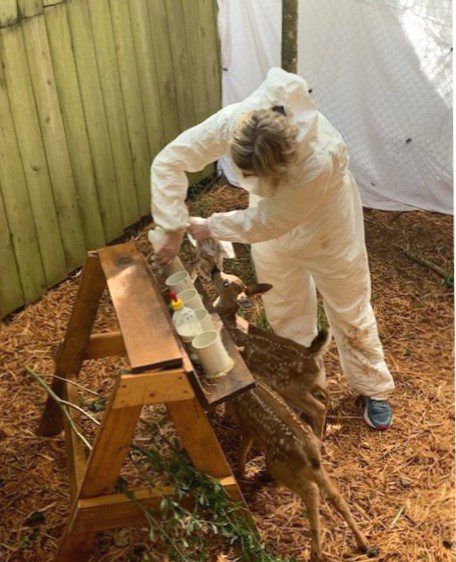Questions about the BC SPCA
Yes, some school programs will give you credit for volunteering with the BC SPCA.
Practicums at Wild ARC are available for university and professional training credits.
Practicums at the Vancouver Branch are also available to university students if registered through the University of British Columbia.
High-school work experience may also be available at your local BC SPCA branch. Contact them directly for details.
Veterinary and registered animal health technologist externships may also be available at certain BC SPCA Hospitals and Clinics. Contact them directly for details.
BC SPCA locations currently are not hosting birthday parties as staff re-evaluate their effect on vulnerable, rescued animals. For animal-loving kids, parents may consider one of our fun and educational workshops or camps as a gift. BC SPCA Kids Club membership is also a gift that will keep on giving, all year long and beyond. Visit spca.bc.ca/kids for more details.
YES! Gift cards are available for our online shop. Please note that gift cards can only be applied to products in the online store and can not be applied to adoption fees at this time.
The BC SPCA supports the use of evidence-based standards and clear expectations for slaughter without prior stunning. Nonetheless, since slaughter without prior stunning has been scientifically demonstrated to cause unnecessary suffering, the BC SPCA’s position is that governments should take more substantial action by eliminating the practice in Canada, or at the very least, by requiring immediate post-cut stunning of every animal.
The BC SPCA believes that the methods used to kill any animal must be humane. Read more about the BC SPCA’s position on humane killing and farm animal welfare.
Ritual slaughter practices are legally permitted under B.C.’s and Canada’s meat processing laws. Therefore, we will continue advocating for stronger standards to prevent suffering of these animals, including pushing for independent third-party monitoring and inspection of slaughter facilities.
The BC SPCA is opposed to the use of any animal or its tissues for dissection in education. When training animal professionals like veterinarians or technicians, dissections may be appropriate in certain circumstances.
At any educational level, we believe students should not be compelled to perform or watch animal dissection. We support students’ ability to opt out of animal dissection assignments. Alternatives to dissection, such as computer simulations and models, should be available to students.
The BC SPCA encourages developing techniques that result in the replacement, reduction and/or refinement of animal experiments or procedures. We urge governments, universities and other research institutions to make greater efforts to use non-animal alternatives.
Read our full position statements on animals used in science and use of animals in teaching.
The BC SPCA is the only animal welfare organization that can investigate animal cruelty as established by the Prevention of Cruelty to Animals Act and the Constitution and Bylaws of the Society (PDF). We are guided by our Code of Ethics (PDF).
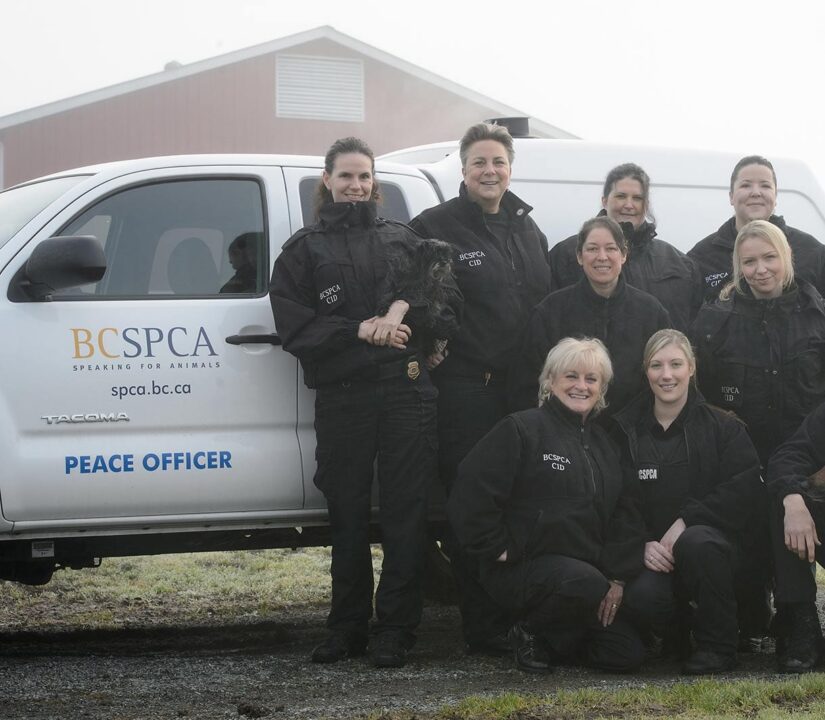
Animal Control agencies enforce city/municipal animal by-laws and, in some cities/municipalities, operate their own animal facilities. By-laws may include stray dogs, leash laws and licensing.
In some BC SPCA animal centres, we are contracted by the city/municipality to enforce the by-laws or kennel stray dogs and/or cats. Contact your local animal centre to determine what services we provide in your community.
Please call the BC SPCA Animal Helpline at 1-855-622-7722 to report animal cruelty.
The BC SPCA is an animal welfare organization committed to protecting and enhancing the lives of animals. The BC SPCA is not a vegan organization. The BC SPCA’s focus is preventing cruelty to and promoting the welfare of animals. We picture a world where all animals have the Five Freedoms, which animals need to live good lives.
For farmed animals, the BC SPCA enforces existing laws and advocates for improved laws and standards. We also support independent inspections to ensure laws and standards are followed.
The BC SPCA’s supporters, volunteers, and staff are united in our concern for animals and our desire to create a better life for animals. We work with people who have a wide range of views. Our shared goal of eliminating animal suffering allows us to make progress. We acknowledge that barriers currently exist to ensuring higher standards for farmed animals. These include the affordability and accessibility of higher-welfare foods and plant-based options.
Everyone has the ability to influence the lives of animals through their choices. We celebrate any action any individual takes to prevent suffering. We support consumers who choose higher-welfare foods and plant-based options. We support farmers who change their practices to improve the welfare of animals on their farm. We support the citizen who calls on government for stronger animal welfare standards. We support and empower each person to do what they can to improve the lives of animals.
This approach is reflected in our organizational Food Policy. The policy ensures:
- Vegan and vegetarian foods are available, and
- If animal products are served at BC SPCA events or meetings, they are higher welfare
This enables all our supporters, volunteers, and staff to eat food that aligns with their values and respects the BC SPCA’s commitment to improving the lives of farmed animals.
Learn more about the BC SPCA’s farmed animal advocacy work.
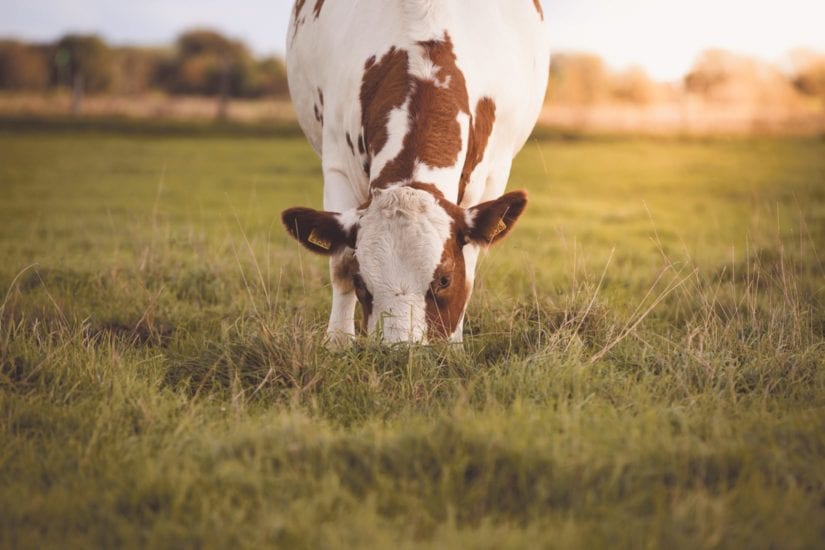
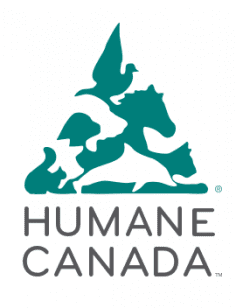 We play an active role on national animal welfare issues as a member society of Humane Canada. Humane Canada is the largest national animal welfare organization in Canada, representing more than 50 humane societies and SPCAs across the country. Humane Canada works by implementing solution-based strategies to end animal cruelty and improve animal protection.
We play an active role on national animal welfare issues as a member society of Humane Canada. Humane Canada is the largest national animal welfare organization in Canada, representing more than 50 humane societies and SPCAs across the country. Humane Canada works by implementing solution-based strategies to end animal cruelty and improve animal protection.
The BC SPCA believes that all animals should enjoy, as a minimum, five essential freedoms, which were first described by the Farm Animal Welfare Council of the UK:
- Freedom from hunger and thirst
- Freedom from pain, injury and disease
- Freedom from distress
- Freedom from discomfort
- Freedom to express behaviours that promote well-being
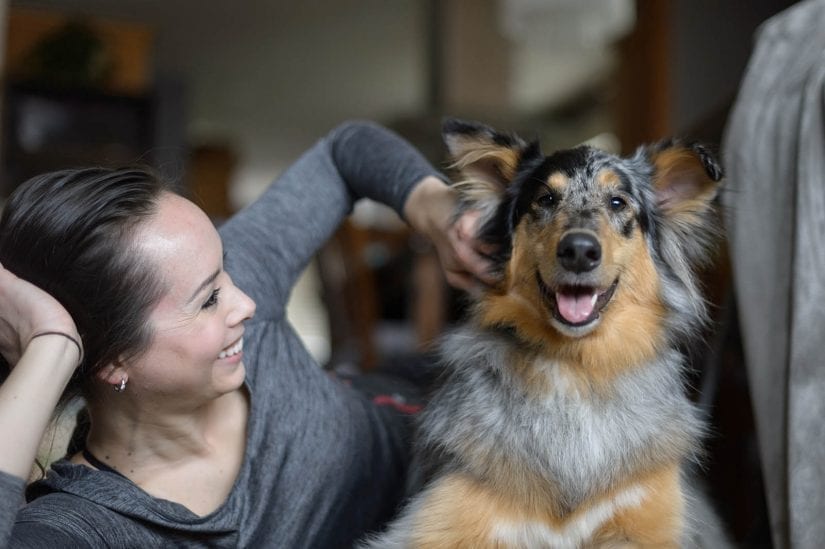
What does animal welfare mean?
The objectives of the BC SPCA are to prevent cruelty and to promote the welfare of animals. Animal welfare means an animal’s quality of life, and it is affected by animals’ physical health and the feelings they experience.
Animals experience good welfare when they are able to experience positive feelings (arising from pleasurable activities and the fulfillment of behavioural needs) and when they are free from poor physical health and negative feelings (such as pain, discomfort, hunger, thirst, fear and frustration).
Animals that are healthy, pain-free, comfortable and unstressed are said to have good welfare.

BC SPCA is an acronym for The British Columbia Society for the Prevention of Cruelty to Animals. We are a registered, non-profit, animal welfare charity and our mission is protecting vulnerable animals and mobilizing communities so animals and people thrive together in British Columbia. Learn more about us.
There are SPCA organizations around the world, however they are all independent of one another. The BC SPCA was founded in 1895 by a small group of merchants, journalists and clergy who were deeply concerned about the abuse of horses being used as beasts of burden as B.C. entered a construction boom dedicated themselves to making life better for animals.
The BC SPCA is now one of the largest animal welfare organizations of its kind in North America, providing a wide range of services including the enforcement of animal cruelty laws through investigations into cases of animal cruelty and neglect; the shelter, care and adoption of homeless, surrendered and abandoned animals; low-cost spay/neuter programs; youth programs, advocacy on animal-related issues including higher welfare standards for farm animals; wildlife rescue and rehabilitation and more. Learn more about us.
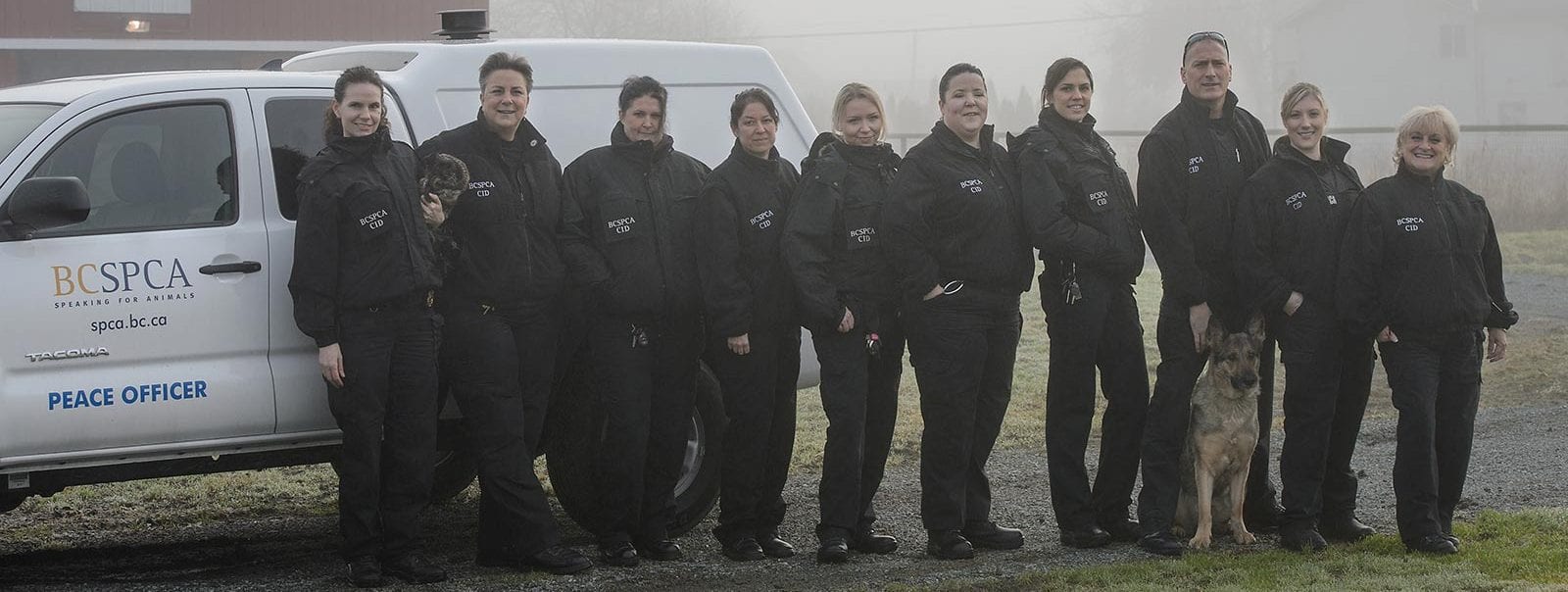
Addressing the cat overpopulation in B.C. is a major focus of our strategic plan. We are responding to the issue of feral and free-roaming cats across the province with six key initiatives. These include carrying out large scale spay/neuter programs and working with municipalities to implement cat-related bylaws. You can help by taking action in your community!
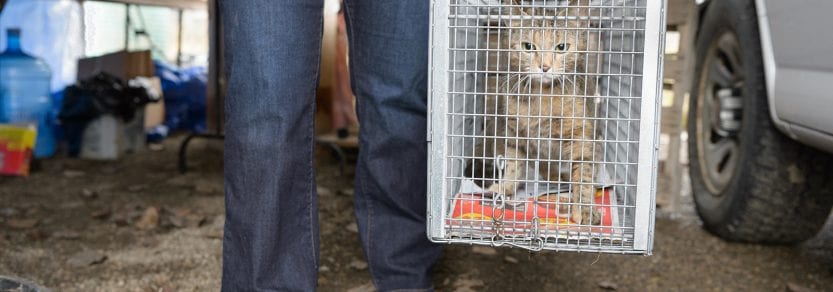
The British Columbia Society for the Prevention of Cruelty to Animals (BC SPCA) is a registered, non-profit, animal welfare charity. Our mission is protecting vulnerable animals and mobilizing communities so animals and people thrive together. The BC SPCA is the only animal welfare organization in B.C. with the authority to enforce animal cruelty laws under the Prevention of Cruelty to Animals Act (PCA Act). We are the largest animal welfare organization of our kind in North America and the largest animal sheltering society in the world with locations across B.C. including: We assist more than over 167K animals in need every year and are funded by compassionate animal lovers who support our work and partner with us to protect and enhance the quality of life for domestic, farm and wild animals in B.C. See more stats at a glance. We are committed to achieving the highest standards of transparency and accountability in all our activities. In order to maintain these high standards of accountability and to foster public confidence in the work of our organization, we undertake to provide the public with information on our governance, operations and financial position. Learn more about our programs and services, our mission, vision and charter and our history.
Every year the BC SPCA takes in thousands of animals suffering from physical and behavioural problems. We treat them with great care and find them homes to suit their needs. Most animals we take in are treatable and we do not place a time limit on how long an adoptable animal can stay in one of our animal centres. However, our goal is always to get animals into homes as soon as possible.
The BC SPCA does not euthanize healthy cats or dogs entering our facilities. All medically and behaviourally healthy animals are placed in the best suited adoptive homes with caring guardians.
If an animal is being overlooked for adoption in one of our animal centres, we transfer them to a different branch to provide the best opportunities for adoption. *Learn more about the Drive for Lives program.
When would the BC SPCA euthanize an animal?
If an animal is suffering from a mental or physical illness or behavioural problem that cannot be treated in the animal centre, or an illness or behavioural problem that poses a serious public health or public safety concern, the animal may be euthanized.
Our community outlook
We believe that we are part of a larger community responsibility for companion animals. We are grateful to our supporters and adopters who open their hearts and homes to help us place animals with medical and behavioural challenges.
Understanding the terminology
The definition and use of the term “no-kill” is controversial and the BC SPCA does not use this term as we believe it divides animal welfare organizations. It isn’t useful or scientific in promoting animal care practices that best meet animal welfare standards. The term “no-kill” is best used to describe community goals, and not to describe individual animal facilities within a community.
Our euthanasia statistics
Our guidelines for determining treatability and adoptability are public: Asilomar & Adoptability Guidelines (PDF). As part of our commitment to transparency, we report annual euthanasia numbers using the Asilomar Annual Report.
2024 Asilomar Annual Report (PDF)
2023 Asilomar Annual Report (PDF)
2022 Asilomar Annual Report (PDF)
2021 Asilomar Annual Report (PDF)
2020 Asilomar Annual Report (PDF)
2019 Asilomar Annual Report (PDF)
2018 Asilomar Annual Report (PDF)
The BC SPCA helps:
- Companion animals such as dogs, cats, rabbits, hamsters and gerbils
- Farm animals such as goats, sheep, chickens, pigs and horses
- Wild animals such as sea otters, birds of prey, skunks, raccoons and squirrels
